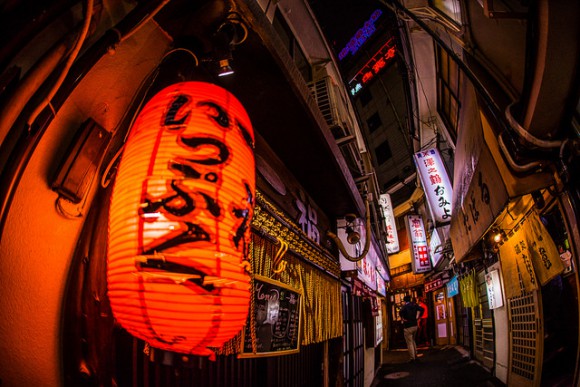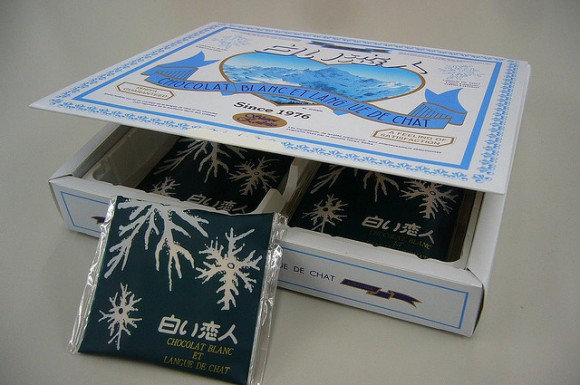
Japan has a lot of unique customs, and not all of them make sense to newcomers. Eating fried chicken on Christmas Eve, anyone? How about the weird ritual of girls giving chocolate to guys on Valentine’s Day (do guys really like chocolate more than we girls do?).
But it turns out that there are plenty of customs that even Japanese people think are a waste of time. Here’s the top seven worst offenders, and why they are so annoying…
A poll conducted by Yahoo! Japan asked 200 people in their 20s and 30s which Japanese societal customs they’d most like to see abolished. While we were expecting some of these, others kind of surprised us and got us marvelling over the fact it’s not just us foreigners who like to grump about Japan’s strict set of social rules.
1. Pouring sake for people senior to you in the company
Japan has a strictly hierarchical society, and those on the bottom rung of the ladder must kowtow to those above them – that’s just the way it’s done. At company drinking parties, you’re expected to keep your superior’s blood alcohol levels well topped up by attending to their glass and making sure it never runs empty. Here’s what some of the pollees had to say:
“If I constantly have to attend to someone’s glass, I can’t enjoy the party or concentrate on talking to anyone else.” – Male, 36
“Everyone has their own drinking pace, I can’t be expected to know theirs.” – Male, 37
2. Having to endure tedious “entertainment” during a drinking party
At drinking parties in Japan, it’s common to play silly drinking games or make up chants and songs, and pressure coworkers to down glasses of beer. Not surprisingly, many people find these antics childish and prefer to just de-stress from a long workday by having some drinks and conversation.
“Surely it’s enough to just eat and have a few drinks with everyone?” – Male, 37
“It’s stressful enough without being made to perform like a sozzled seal” – Male, 39 (we might have ad-libbed with “sozzled seal”.)
3. Giving chocolate to coworkers out of obligation
▼ Deliciously indifferent.
On Valentine’s Day in Japan, there’s two types of chocolate being given out: “honki” chocolate, which is the kind you give to someone you genuinely like or have affection for, and “giri” or obligation chocolate which you have to give to all of the men in your department. And we do mean ALL of them, since if you leave out Suzuki-san from the third floor for having halitosis and constantly looking down your blouse, you will bring shame upon his entire family and possibly find yourself bearing the brunt of some judgemental water-cooler gossip about what a stinge you are with your chocolatey treats. But what did the general public have to say?
“It’s just a waste of time” – Female, 31
“It’s a burden for the one who has to make it and for the people who have to fake enthusiasm about receiving it” – Female, 37
“It’s a pain having to return the favour on White Day” – Male, 32
4. Returning the favour after receiving gifts given to you on special occasions
When Sheldon Cooper from The Big Bang Theory complained at Christmas that “you haven’t given me a gift; you’ve given me an obligation,” we reckon he didn’t even know the half of it since he’s never received a gift in Japan. Here, it’s customary to receive monetary gifts on special occasions like weddings, but it’s not really all that nice a gesture since you’re duty-bound to return the favour with a gift that costs exactly half the amount of money you received. Having to calculate this amount and find a cost-appropriate gift can be a real pain in the bum and sucks the fun out of getting free money. In fact, the whole thing seems like an exercise in time-wasting to us. Why not just give less money in the first place? The survey takers said:
“I’d rather just not get the money in the first place, since it’s so annoying trying to return the favour” – Male, 29
“It’s inconvenient for both the giver and the receiver” – Male, 37
5. Going to an afterparty after a drinking party
▼ The night’s just getting started…
If it wasn’t bad enough that salaried workers in Japan have to spend their evenings drinking with the boss, there’s something called a “nijikai” which literally means second or afterparty and is used to describe the (yes, mandatory, or at least heavily peer-pressured) process of going from the drinking party to a second bar or restaurant and carrying on the whole rigmarole for a few more hours. Needless to say, some people find this utterly pointless.
“Since we’ve already had one drinking get-together, why prolong it? Let those who want to go home bow out gracefully while the rest carry on” – Female, 36
“I’m usually done after the first one, I don’t want to carry on for the sake of a change of scenery” – Male, 34
6. Having to pay money to attend a wedding
Wedding guests in Japan are usually expected to cough up a few hundred dollars to cover their attendance, and even more if you’re a close relative. Usually they get to stuff their face with good food and drink, though, and even receive a gift in return (see number 4). But many take issue with being invited to a wedding and then being asked to pay to be there.
“It’s like I’m being expected to pay my own entry fee!” – Female, 38
“It’s expensive and if you really want me to come, why do I have to pay you?” – Male, 33
7. Bringing back omiyage (souvenirs) for everyone in the office after a trip
▼ Only a total monster would visit Hokkaido and NOT bring back delicious Shiroi Koibito cookies for everyone.
In Japan, once you’ve inconvenienced everyone in your office (right down to the cleaning lady and the bloke who services the printers) by taking a week (if you’re lucky) to go on holiday, you must atone for your sins by bringing delicious souvenirs from wherever you’ve visited. And make sure you don’t forget creepy Suzuki-san from the third floor because… well, you remember point number 3, don’t you?
“It’s expensive to bring omiyage for everyone in the office” – Female, 38
“It sucks the fun out of my holiday having to buy it. And some people never take any holidays, so they never bring any omiyage – the whole system is unfair and unbalanced” – Male, 35
So there you have it, seven bothersome Japanese customs that even Japanese people wish didn’t exist. Personally, I love afterparties and omiyage, so I’d lobby to keep those two. The others, though? Meh.
What Japanese customs do you think should be done away with?
Source: Yahoo! Japan
Main Image: Flickr – Richard Elzey




 Is a woman “middle-aged” at 30? 40? 50? Japanese men and women give different answers in poll
Is a woman “middle-aged” at 30? 40? 50? Japanese men and women give different answers in poll We ask Japanese people about their favorite aspects of eight different cultures
We ask Japanese people about their favorite aspects of eight different cultures Don’t bother, ladies: Survey reveals most Japanese guys don’t want your Valentine’s chocolate
Don’t bother, ladies: Survey reveals most Japanese guys don’t want your Valentine’s chocolate Japanese girls reveal who they really give most Valentine’s chocolates to, and it’s not boys
Japanese girls reveal who they really give most Valentine’s chocolates to, and it’s not boys Giri obligation chocolates seen as power harassment, more Japanese companies ban practice
Giri obligation chocolates seen as power harassment, more Japanese companies ban practice McDonald’s new Happy Meals offer up cute and practical Sanrio lifestyle goods
McDonald’s new Happy Meals offer up cute and practical Sanrio lifestyle goods All-you-can-drink Starbucks and amazing views part of Tokyo’s new 170 meter-high sky lounge
All-you-can-drink Starbucks and amazing views part of Tokyo’s new 170 meter-high sky lounge Kyoto’s 100 Demons yokai monster parade returns!
Kyoto’s 100 Demons yokai monster parade returns! More foreign tourists than ever before in history visited Japan last month
More foreign tourists than ever before in history visited Japan last month Hamster abandoned at Tokyo ramen restaurant gets new home
Hamster abandoned at Tokyo ramen restaurant gets new home Studio Ghibli glasses cases let anime characters keep an eye on your spectacles
Studio Ghibli glasses cases let anime characters keep an eye on your spectacles Beautiful Sailor Moon manhole cover coasters being given out for free by Tokyo tourist center
Beautiful Sailor Moon manhole cover coasters being given out for free by Tokyo tourist center The oldest tunnel in Japan is believed to be haunted, and strange things happen when we go there
The oldest tunnel in Japan is believed to be haunted, and strange things happen when we go there Super Nintendo World expansion gets delayed for several months at Universal Studios Japan
Super Nintendo World expansion gets delayed for several months at Universal Studios Japan Rice bran, the skincare product used by Japanese women for centuries and now Chloë Grace Moretz
Rice bran, the skincare product used by Japanese women for centuries and now Chloë Grace Moretz Disney princesses get official manga makeovers for Manga Princess Cafe opening in Tokyo
Disney princesses get official manga makeovers for Manga Princess Cafe opening in Tokyo Starbucks reopens at Shibuya Scramble Crossing with new look and design concept
Starbucks reopens at Shibuya Scramble Crossing with new look and design concept Beautiful new Final Fantasy T-shirt collection on the way from Uniqlo【Photos】
Beautiful new Final Fantasy T-shirt collection on the way from Uniqlo【Photos】 Is the new Shinkansen Train Desk ticket worth it?
Is the new Shinkansen Train Desk ticket worth it? Foreign English teachers in Japan pick their favorite Japanese-language phrases【Survey】
Foreign English teachers in Japan pick their favorite Japanese-language phrases【Survey】 Japanese convenience store packs a whole bento into an onigiri rice ball
Japanese convenience store packs a whole bento into an onigiri rice ball We try out “Chan Ramen”, an underground type of ramen popular in the ramen community
We try out “Chan Ramen”, an underground type of ramen popular in the ramen community Studio Ghibli releases Kiki’s Delivery Service chocolate cake pouches in Japan
Studio Ghibli releases Kiki’s Delivery Service chocolate cake pouches in Japan Japan’s bone-breaking and record-breaking roller coaster is permanently shutting down
Japan’s bone-breaking and record-breaking roller coaster is permanently shutting down New definition of “Japanese whiskey” goes into effect to prevent fakes from fooling overseas buyers
New definition of “Japanese whiskey” goes into effect to prevent fakes from fooling overseas buyers Our Japanese reporter visits Costco in the U.S., finds super American and very Japanese things
Our Japanese reporter visits Costco in the U.S., finds super American and very Japanese things Studio Ghibli unveils Mother’s Day gift set that captures the love in My Neighbour Totoro
Studio Ghibli unveils Mother’s Day gift set that captures the love in My Neighbour Totoro Foreign passenger shoves conductor on one of the last full runs for Japan’s Thunderbird train
Foreign passenger shoves conductor on one of the last full runs for Japan’s Thunderbird train Domino’s Japan now sells…pizza ears?
Domino’s Japan now sells…pizza ears? New Japanese KitKat flavour stars Sanrio characters, including Hello Kitty
New Japanese KitKat flavour stars Sanrio characters, including Hello Kitty Kyoto creates new for-tourist buses to address overtourism with higher prices, faster rides
Kyoto creates new for-tourist buses to address overtourism with higher prices, faster rides Sales of Japan’s most convenient train ticket/shopping payment cards suspended indefinitely
Sales of Japan’s most convenient train ticket/shopping payment cards suspended indefinitely Sold-out Studio Ghibli desktop humidifiers are back so Totoro can help you through the dry season
Sold-out Studio Ghibli desktop humidifiers are back so Totoro can help you through the dry season Japanese government to make first change to romanization spelling rules since the 1950s
Japanese government to make first change to romanization spelling rules since the 1950s Ghibli founders Toshio Suzuki and Hayao Miyazaki contribute to Japanese whisky Totoro label design
Ghibli founders Toshio Suzuki and Hayao Miyazaki contribute to Japanese whisky Totoro label design Doraemon found buried at sea as scene from 1993 anime becomes real life【Photos】
Doraemon found buried at sea as scene from 1993 anime becomes real life【Photos】 Tokyo’s most famous Starbucks is closed
Tokyo’s most famous Starbucks is closed One Piece characters’ nationalities revealed, but fans have mixed opinions
One Piece characters’ nationalities revealed, but fans have mixed opinions We asked a Uniqlo employee what four things we should buy and their suggestions didn’t disappoint
We asked a Uniqlo employee what four things we should buy and their suggestions didn’t disappoint Princesses, fruits, and blacksmiths: Study reveals the 30 most unusual family names in Japan
Princesses, fruits, and blacksmiths: Study reveals the 30 most unusual family names in Japan How do people in Japan feel about eating whale? We asked five people for their opinions
How do people in Japan feel about eating whale? We asked five people for their opinions Noodles for candy lovers: Gummy Udon arrives just in time for White Day
Noodles for candy lovers: Gummy Udon arrives just in time for White Day Is it another creepy Japanese iPhone case? No, it’s a multicoloured hermaphrodite lobster!
Is it another creepy Japanese iPhone case? No, it’s a multicoloured hermaphrodite lobster! Real-life Olaf takes Twitter by (snow)storm
Real-life Olaf takes Twitter by (snow)storm Survey reveals Japanese men really want home-made chocolate, but are women willing to make it?
Survey reveals Japanese men really want home-made chocolate, but are women willing to make it? Only one demographic in survey is happy about Japan’s workplace obligation Valentine’s chocolate
Only one demographic in survey is happy about Japan’s workplace obligation Valentine’s chocolate Tokyo women’s university will accept transgender students who identify as female, a Japan first
Tokyo women’s university will accept transgender students who identify as female, a Japan first Why do Japanese gamers spend so much more money on mobile games than anyone else?
Why do Japanese gamers spend so much more money on mobile games than anyone else? Shabani the gorilla is so handsome he’ll be appearing on sweets in Japan this Valentine’s Day
Shabani the gorilla is so handsome he’ll be appearing on sweets in Japan this Valentine’s Day This Valentine’s Day, wow your special someone with boozy samurai warlord chocolates!
This Valentine’s Day, wow your special someone with boozy samurai warlord chocolates! Heartbroken visitors leave tributes to Japan’s anime-loving penguin Grape-kun at new memorial
Heartbroken visitors leave tributes to Japan’s anime-loving penguin Grape-kun at new memorial Humbug! Japanese wives in international marriages share what they hate about Christmas overseas
Humbug! Japanese wives in international marriages share what they hate about Christmas overseas Japanese women explain why they give “obligation chocolate” to male coworkers on Valentine’s Day
Japanese women explain why they give “obligation chocolate” to male coworkers on Valentine’s Day Is the coronavirus going to kill Japan’s obligation chocolate Valentine’s Day custom?
Is the coronavirus going to kill Japan’s obligation chocolate Valentine’s Day custom? Pop quiz: Test yourself in 5 situations of Japanese manners and customs
Pop quiz: Test yourself in 5 situations of Japanese manners and customs
Leave a Reply